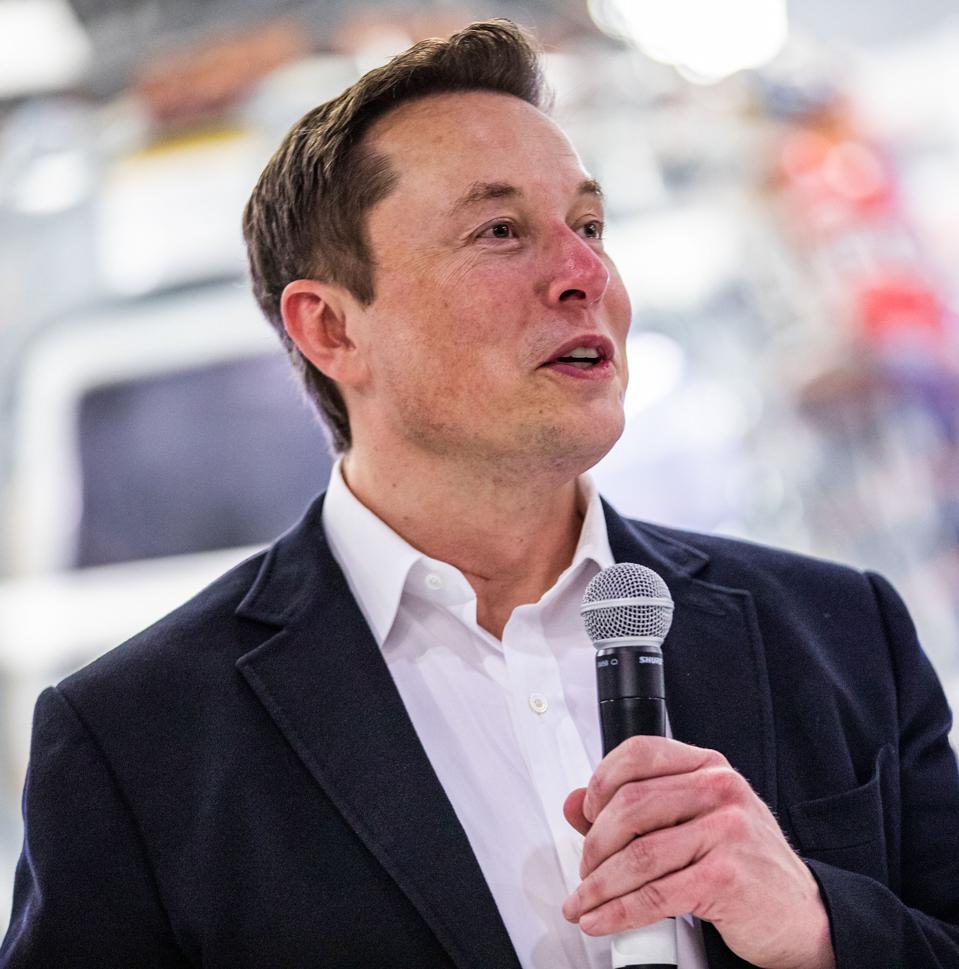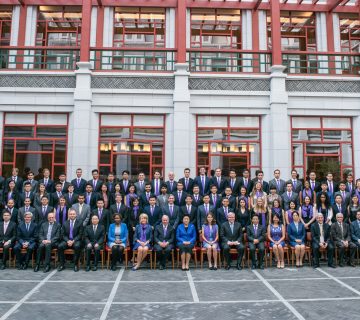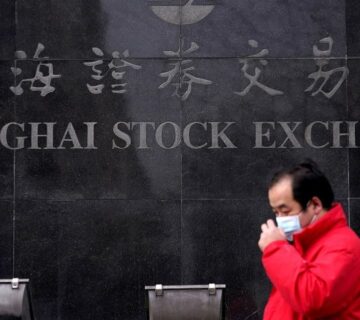Tesla managed to meet its 2019 delivery guidance with a strong fourth quarter led by shipments of Model 3 sedans and has an upbeat outlook on business in China for the year ahead, propelling shares of Elon Musk’s electric vehicle company–and most likely his net worth–to the highest ever.
The company said early Friday it got 112,000 vehicles to customers worldwide during the three months that ended on Dec. 31, including 92,550 Model 3 and a combined 19,450 units of the pricier Model S and X, each of which sell for about $100,000. Total deliveries for the year were about 367,500, just above Tesla’s forecast for delivering at least 360,000 vehicles. (Earlier in 2019, Musk thought they might hit 400,000 units.)

Tesla cofounder and CEO Elon Musk.
AFP VIA GETTY IMAGES
Tesla rose 3% to a record $443.01 in Nasdaq trading Friday, even as the overall index slid 0.8%. (Other major indices also fell amid concerns over rising tension in the Middle East after a U.S. airstrike killed Iranian military leader Qassem Soleimani.) The stock has risen about 250% since its June 3, 2019, low of $178.97, accelerating since October 23, 2019, when the company reported a surprise third-quarter profit.
Forbes estimates that the steady run-up in the value of Tesla shares in the past few weeks has pushed Musk’s net worth to $27.5 billion, as he is the single biggest shareholder.
The stock is likely benefiting from the company’s rapid opening of its new Gigafactory in Shanghai, China, where the first locally built Model 3s are to be delivered to customers next week. Construction of the $5 billion Chinese project continues but the first phase is opening in less than a year, far faster than industry observers expected.
“We continue to focus on expanding production in both the U.S. as well as our newly launched facility in Shanghai,” Tesla said in a statement. “Despite breaking ground at Gigafactory Shanghai less than 12 months ago, we have already produced just under 1,000 customer salable cars and have begun deliveries.”
The company claims it’s also “demonstrated” it can achieve a production rate at the Shanghai plant of more than 3,000 cars a week. That figure excludes the production of battery packs in China, which only began late last month, so it’s unclear when it will attain that 3,000-a-week rate.
In its decade as a public company, Tesla has been an influential force for the electric vehicle market but also a highly volatile player that has often struggled to deliver on all of Musk’s ambitious plans. The company has yet to report a full-year profit, but attaining sustainable production and sales in China will go a long way to finally achieving that, barring unexpected impediments. The company also adds the Model Y this year, a $50,000 battery-powered crossover derived from the Model 3 platform that should boost volume further in 2020.
“Model 3 production rates continue to move higher (~6.7k/week in Q4:19, up ~9% sequentially) and Shanghai deliveries should be the next catalyst to drive volume growth,” Ben Kallo, an equity analyst with Baird, who has an Outperform rating on Tesla, said in a research note. “Importantly, the factory appears to be ramping faster than we expected, with demonstrated run-rate production capability of 3k units/week and local battery production underway.”
Vehicle production, solely at Tesla’s Fremont, California, plant in 2019, totaled 104,891 units, including 86,958 Model 3s. For the full year, Tesla built just over 365,000 electric cars and crossovers.
Because the company doesn’t work with car dealers and distributes all of its vehicles itself, Tesla can’t book revenue from a vehicle sale until it has been delivered to a customer. As a result, there’s typically more lag time between the production and sale of a vehicle than at conventional auto companies. Quarterly financial results will be released in a few weeks.
Quarterly deliveries in the U.S. likely benefited from the end of U.S. tax incentives for Teslas, which had already fallen from a maximum of $7,500 in past years to just $1,875 by year-end.
“We think sales were boosted by customer purchases ahead of its federal EV tax credit expiration,” Garrett Nelson, an equity analyst with CFRA Research, said in a research note. He rates the shares a Hold, but raised his target $400 on Friday.
“TSLA shares surged in the back half of 2019, as balance-sheet-related concerns eased and investors began to look ahead to the China startup and 2020 Model Y debut,” he said. “Still, we think questions remain about first-half 2020 results and gross margin sustainability; we point out that Tesla is already lowering prices in China and faces a flood of EV competition in the U.S., with at least 25 new models debuting this year–with most eligible for the full $7,500 tax credit.”

Tesla’s Shanghai Gigafactory appears to have become operational in less than one year.
TESLA
Forbes




